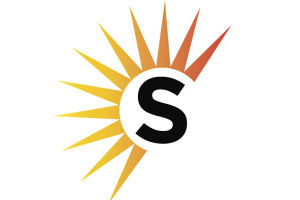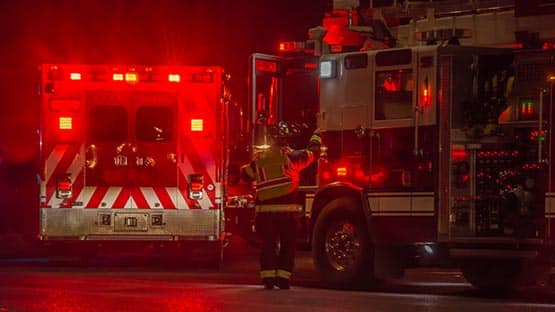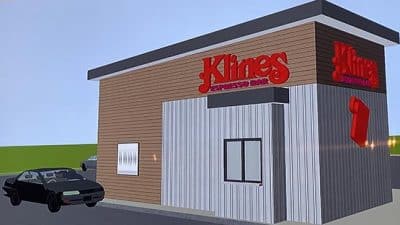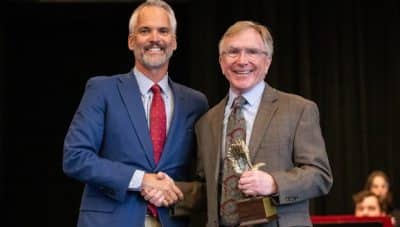
The team received national recognition for their solar barn-raising projects, completed in partnership with Mennonite Central Committee (MCC).
“We appreciate that Secure Futures, with funding from the U.S. Department of Energy, have helped us carry out our mission to restore right relationships with God’s creation through the generation of solarproduced electricity,” said Dennis Kready, maintenance manager for MCC U.S., who has been influential in implementing and encouraging the use of solar resources. “We are especially gratified to be part of an initiative that reduces reliance on energy produced by carbon-emitting fuels.”
Over the past two years, Secure Futures has worked with leadership, students, and other members of the Anabaptist community to install solar arrays on rooftops at the Material Resources Center in Ephrata, PA; Daniels Run Peace Church in Fairfax, VA; and two locations in Harrisonburg, VA—Eastern Mennonite University and Gift & Thrift, an MCC Thrift shop.
Area residents as well as supporters from several states away participated in the projects. The team combined the age-old barn-raising tradition, a national network of Mennonite Central Committee organizations, an innovative and proven business model, and a strategic partnership to help the four organizations go solar.
“To date, these three projects have produced more than 380,000 kilowatt hours of electricity,” said Anthony Smith, president and CEO of Secure Futures. “That’s the equivalent of the electricity used by more than 32 homes in a year or the equivalent of carbon dioxide emissions from more than 30,000 gallons of gasoline. These organizations are reducing our need to rely on fossil fuels for energy, consequently helping us achieve cleaner air and water. These solar barn-raising projects also exemplify the use of renewable volunteer energy in helping to build these projects at far less cost, thereby making solar much more affordable to community-based nonprofits.”
The solar barn-raising team successfully completed the Solar in Your Community Challenge across three unique, but related communities—two nonprofits, a university, and a church. The solar barn-raising model arose from a long-standing Anabaptist tradition of community-based mutual support dating back
to the 18th century.
The concept of a community coming together to voluntarily build each other’s barns or homes from the ground up in a day (aka, a barn raising) is familiar to most Mennonites, especially those with Amish heritage, and remains a common practice today. While the cost of installing a solar power system is often out of reach for nonprofits, the thrift shop and Mennonite Central Committee’s Material Resources Center have a natural base of support from volunteers, donors, and supporting organizations such as churches and financial institutions that provided free labor for these projects, making them financially feasible.
In June 2016, Harrisonburg Gift & Thrift, Inc. board members approached Secure Futures to explore a third-party financing model using volunteer installation. Together, they developed and implemented the Thrifty Community Solar Barn Raising model. The partners in this project are working alongside more than 170 teams from 40 states, the District of Columbia, Guam, and Puerto Rico to develop projects and programs that expand solar access to low- and moderate-income households; nonprofit organizations; and state, local, and tribal governments.
If all of the Solar in Your Community Challenge teams successfully execute their business plans, the program would create 1.6 gigawatts of new solar by 2020 while serving as many as 900 nonprofits and nearly 50,000 households.
The teams worked with the support of the U.S. Department of Energy Solar Energy Technologies Office and ICMA, the Prize Administrator who helped to implement the program.










